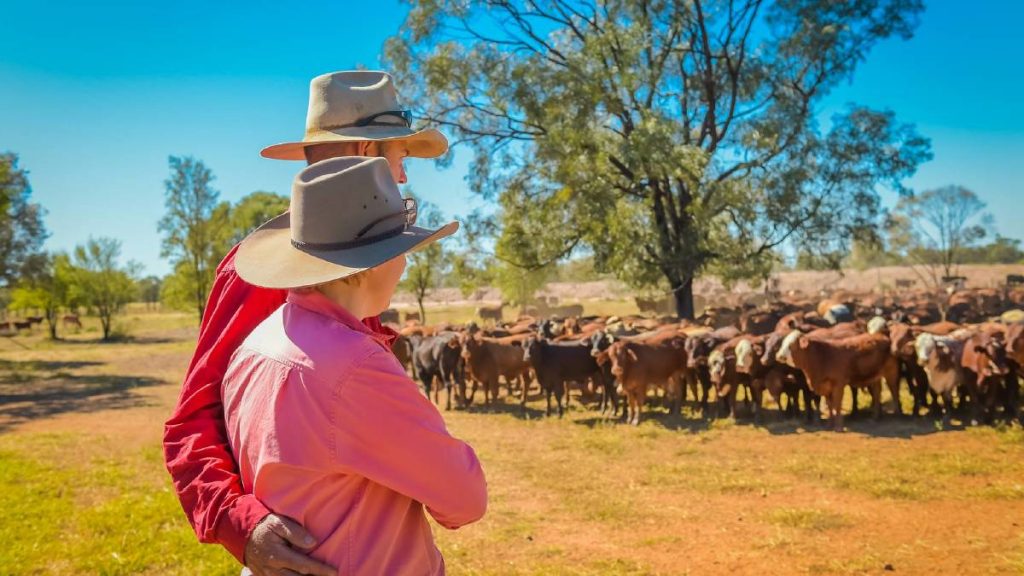By Ian McLean and Phil Holmes

We believe the management of capital is an issue for the beef industry. The returns on financial capital are insufficient, environmental capital needs preservation and intellectual capital is undervalued. While all aspects are important; we will focus here on intellectual capital as it influences the management of the other two.
Within the context of pastoral business management, we have defined intellectual capital as the hard-won knowledge that smart producers have learnt from their peers and predecessors about profitable pastoral production, along with their own experience and knowledge gathering. It is distinct from intellectual property which is more about a breakthrough in understanding due to a completely new way of looking at issues.
Managing a modern pastoral business is a multi-disciplinary vocation, requiring skills in animal husbandry, genetics, land management, mechanics, engineering, people, business and finance. Intellectual capital is the ability to effectively combine all of the disciplines for a positive result in the long term. There is a lot of intellectual capital in the industry at the moment, in producers and industry service providers.
Unlike financial capital though, the industry cannot have too much intellectual capital. It will be intellectual capital that will drive ongoing improvements in industry performance. We believe that intellectual capital is not valued highly enough in the industry, generally.
Yes, working hard, grit, determination and practical ingenuity are all important qualities. The industry has been built on these and values them accordingly. We think intellectual capital should be valued similarly by the industry. We dare to imagine a future where there are more accolades handed out for intellectual capital than there are for leading around an overfed bull with no objective genetic data.
In our work we are very fortunate to see first hand a lot of the intellectual capital in the industry. We learn a lot from the intellectual capital of leading producers, and a lot of what we do is bringing these people together to learn from each other. The switched-on producers collectively have much more knowledge than we possess!
All that we try to do is to keep the discussion on track and encourage rigorous thinking. In discussions with one of these leading producers the question of how to capture this intellectual capital, or experiential knowledge as they put it, came up.
They discussed how there was a lot of things that they learned the hard way, and that if a lot of the wisdom within the industry could be somehow bottled, then it may prevent others from having to learn from as many mistakes of their own.
In an effort to capture some of this wisdom we drafted a list of people in the beef industry whose attitude and approach to management we believe contains insights and wisdom that others in the industry could learn from.
We posed the following questions to them;
- What are the key things you now know that you wish your younger self had known?
- How has a failure (or apparent failure) set you up for later success?
- What are the biggest industry myths that constrain profitable beef production?
- What process do you employ to avoid the myths and obtain reliable information?
- How is risk best managed for long-term success?
- What does ‘sustainable beef production’ mean to you?
27 respondents (individuals and couples) generously shared their hard-won experience and unique perspectives. We included their compiled responses as a chapter called the ‘Pastoral Panel’ in the Australian Beef Report: 2020 Vision. The combined responses to the six questions fill 43 pages of the report. It is a unique compilation of industry wisdom and inspires great confidence in the future of the pastoral industry.
There are many recurring themes in the responses, such as:
- How grass management is more important than cattle management
- The value of data and the importance of doing your own thinking and backing your own judgement
- The need to get succession right
- The long-term implications of decisions that aren’t well thought out
- The importance of learning from your mistakes
The responses provide an insight into how leading producers think and how they approach decision making, business and life.
Here are some of their responses
‘…if I’d have known all of them at the start and how they combined I’d be a long way ahead now.’
‘We had to make huge changes to be profitable or face a bleak future. This hunger to improve helped us seek out better options.’
‘Thinking is the hardest work I do.’
‘We learned to own our failures and develop strategies from the ashes.’
‘Think for yourself and follow through – do not follow the herd.’
‘Knowledge has become our most valuable asset.’
You can read all of the responses, and read more about the importance of intellectual capital in the Australian Beef Report: 2020 Vision available at www.bushagri.com.au/beef
Ian McLean and Phil Holmes are agribusiness consultants with decades of combined experience. Mr McLean is a director of Bush Agribusiness and Mr Holmes is the principal of Holmes & Company.
This article was published by Farm Online/Queensland Country Life on 27/07/20.
